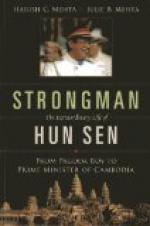If we could but appreciate the great crude past whose conflicts still persist in the boy’s gruesome and tragic dreams, filling him with a fear of the dark, which fear in time past was the wholesome and necessary monitor of self-preservation; if we could only realize how strenuous must be those experiences which guarantee a strong body, a firm will, and an appetite for objective facts, we would not make our education so insipidly nice, so intellectual, so bookish, and so much under the roof. A school and a school building are not synonymous, a church and a church building are not synonymous; schooling is not identical with education, nor church attendance with religion. It is unfortunate if the boy beholds in these two essential institutions merely an emasculated police.
If either the church or the school is to reach the boy it will have to recognize and perform its task very largely beyond the traditional limits of the institution as such, and with a heartiness and masculinity which are now often absent. In this field the indirect and extra-ecclesiastical work of the minister will be his best work, and the time that the teacher spends with his pupils outside the schoolhouse may have more educational value than that spent within. In due time society will be ready to appreciate and support the educator who is bigger than any building; and outdoor schools are bound to grow in favor.
[Illustration: Getting the Spark]
[Illustration: Getting the flame]
[Illustration: Fire!]
Consider also the boy’s love of paraphernalia and all the tokens of achievement or of oneness with his group. The pre-adolescent boy glorying in full Indian regalia, the early-adolescent proud in the suit of his team or in his accouterments as a Scout, and a little later, with quieter taste, the persistent fraternity pin—all of these tell the same story of the love of insignia and the power of the emblem in the social control and development of youth. Think also of the collecting mania, which among primitives was less strong than is ordinarily supposed, but which in early boyhood reaches forth its hands, industriously, if not always wisely, after concrete, tactual knowledge and proprietorship. So also with the impulse to tussle and to revel in the excitement of a contest; inhibited, it explodes; neglected, it degenerates; but directed it goes far toward the making of a man. Evidence of this intensity, zest, and pressure of young life is never wanting. Disorder “rough-house,” and even serious accidents, testify to the reckless abandon which tries to compensate in brief space for a thousand hours of repression. Such occurrences are unfortunate but worse things may happen if the discharge of energy becomes anti-social, immoral, and vicious. “The evils of lust and drink are the evils that devour playless and inhibited youth.”




